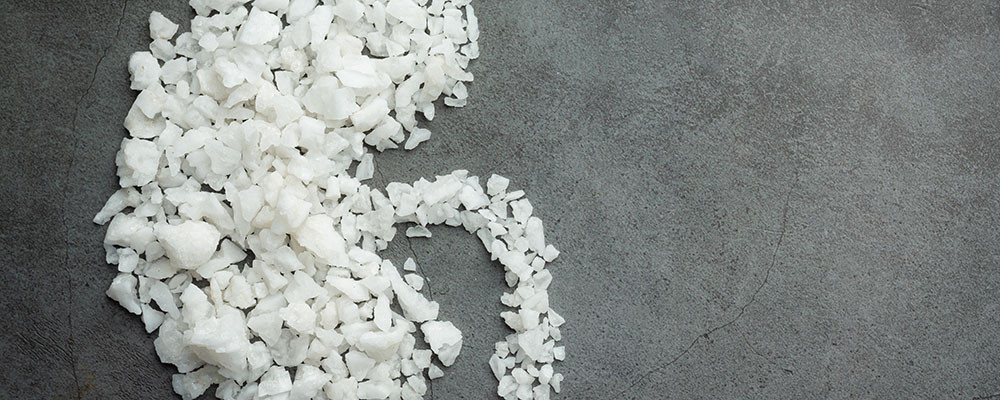Kidney stones are small, hard mineral deposits that form inside your kidney, which is a part of your urinary system. If the stone is dislodged into the ureter, it is called a ureteric stone.

CAUSES
To discover the cause of kidney stones, it is important to analyze the stone to identify the type. The urine must also be laboratory tested to determine the causes so that the most appropriate treatment can be provided.
RISK FACTORS
Risk factors that contribute to the formation of kidney stones can be divided into 2 groups; modifiable and non-modifiable risk factors.
- Modifiable risk factors
- Urinary factors
Some biochemical abnormalities and characteristics of the urine can predispose one to develop kidney stones. Examples of these abnormalities include low urine volume, high urine calcium, high urine uric acid, high urine oxalate, low urine citrate and urinary stasis. Certain urine pH can also contribute to the formation of different stone types.
Each abnormality above is also associated with certain conditions. For example, certain types of diet or certain medical conditions can promote high urine content of some substances, low urine content of some substances or altered urine pH.
- Dietary factors
This is an important factor of stone formation. Low intake of fluid, calcium and potassium can promote calcium stone formation whereas high oxalate, sodium, vitamin C, can promote it.
High intake of animal protein can increase the risk of uric acid stone formation.
- Medications
Certain medications such as topiramate, acetazolamide, indinavir, triamterene etc. can raise the chance of stone formation.
- Non-modifiable risk factors
- Medical conditions
Examples are gout, hyperparathyroidism, diabetes mellitus, short gut syndrome, inflammatory bowel disease, bowel resection, gastrointestinal bypass surgery, distal renal tubular acidosis, urinary tract infection, medullary sponge kidney, obesity, cystinuria.
- Genetic factors and family history
POSSIBLE COMPLICATIONS
- Blockage of the urinary tract by kidney stones, which will cause severe pain. If the blockage is left untreated, the part of kidney on that side will deteriorate and fail ultimately.
- Infection caused by the urinary tract being blocked by the kidney stones Infection entering the blood stream can cause sepsis and lead to death.
SYMPTOMS
- Pain in the back or the sides of the body.
- Blood in urine.
- Nausea and vomiting.
- Fever and chills.
- Frequent urination or severe urge to urinate immediately.
- Pain when urinating.
TREATMENT
- Pain medication or administration of fluids orally or intravenously.
- Medical therapy
- Surgical therapy

SELF-CARE AND PREVENTION OF RECURRENT KIDNEY STONES
- Take medications as prescribed. Do not change or stop taking prescribed medications unless directed by the doctor.
- Drink plenty of water at least 2.5 liters per day or as your doctor suggests.
- Avoid holding the urine for a long time.
- Keep the body weight within the normal body mass index (BMI) range.
- Limit or avoid foods high in oxalate.
- Patient with uric acid stones should cut down on high-purine foods such as animal protein especially entrails, poultry, and nuts.
- Patient with calcium stones should avoid sodium rich foods as it may affect the urinary calcium excretion.
- Taking vitamin C, vitamin D, and calcium supplements may contribute to kidney stone formation. Please consult your doctor before taking any supplements.
- Always observe the color and physical characteristics of your urine. If it is cloudy or reddish or contains kidney stones, collect the sample and bring to your doctor.
- Be sure to make and go to the follow-up appointment. If the symptoms are getting worse or you think you may be suffering from kidney stones, please see your doctor immediately for early diagnosis and treatment to prevent serious complications.
TYPES OF KIDNEY STONES
There are four types of kidney stones:
- Calcium stones which are formed when calcium is combined with oxalate (calcium oxalate) or phosphate (calcium phosphate) in the urine. Calcium stones are associated with a number of factors and medical conditions. Examples are low urine volume, high urine calcium, high urine oxalate (for calcium oxalate stones), high urine pH (for calcium phosphate stones), low urine citrate, low dietary calcium, high vitamin C intake, medullary sponge kidney, gout, hyperparathyroidism, obesity, inflammatory bowel surgery, short gut syndrome, malabsorptive bariatric surgery, distal renal tubular acidosis.
- Struvite (magnesium, ammonium, phosphate) stones which are visible through x-ray and look like deer (stag) horns if they are large enough. Struvite stones are found in patients with chronic urinary tract infections, which cannot be completely treated until the stones are removed. These stones usually cause urine to become non-acidic.
- Uric acid stones which are usually caused by consuming foods that are high in purine, such as animal protein. Reduction of urine pH typically caused by a lower intake of fruits and vegetables can predispose one to form uric acid stones. Uric acid stones cannot be detected through a normal x-ray.
- Cystine stones which are caused by the body’s inability to properly absorb cystine so it gets excreted into the urine and form stones.
